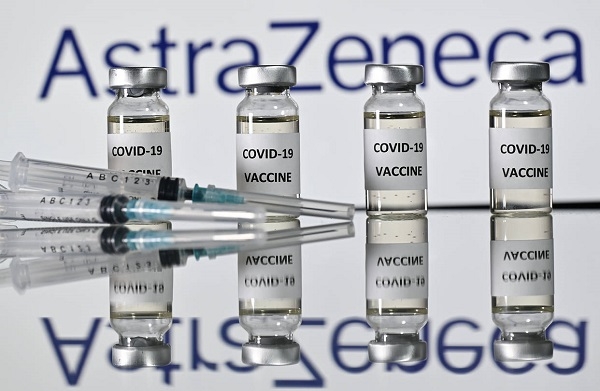AstraZeneca says no evidence in support of blood clotting risk
Total Views |
London, Mar 13: AstraZeneca has defended its vaccine saying that there was 'no evidence of an increased risk' of blood clots, and European and UK medicines regulators have each said the link between the vaccine and blood clots has not been confirmed, hence the roll outs should continue.

After a group of European countries, including Denmark, Norway and Iceland, suspended use of the vaccine on Mar 11, Thailand's Prime Minister, Prayut Chan-o-cha, canceled plans to publicly get the AstraZeneca shot on Mar 12 and the country also delayed its roll out. The company has issued a statement saying, "An analysis of our safety data of more than 10 million records has shown no evidence of an increased risk of pulmonary embolism or deep vein thrombosis in any defined age group, gender, batch or in any particular country with COVID 19 Vaccine AstraZeneca." It also added that "In fact, the observed number of these type of events are significantly lower in those vaccinated than would be expected among the general population."
According to a government statement, Bulgaria has become the latest country to suspend use of the vaccine on Mar 12 pending investigations into safety. Bulgarian Prime Minister Boyko Borissov ordered a halt to all inoculation using the AstraZeneca COVID 19 vaccine until the European Medicines Agency rejects all doubts about the vaccine's safety.
The moves came in response to reports of blood clots in a few inoculated people in Denmark, including one fatality. Denmark was the first country to take the precautionary measure, announcing a 14-day break while authorities investigated further. However, a number of nations -- including Germany, France, the UK, the Netherlands, Mexico and Nigeria -- stood by the shot and reassured citizens of its safety.
The UK's medicine regulator, the Medicines and Healthcare products Regulatory Agency (MHRA), also issued a statement on Mar 11, reassuring people that the vaccine is still safe and that people should still go and get their COVID 19 vaccine. The real-world data has also shown that the vaccine is having a significant impact in reducing COVID 19 hospitalizations.